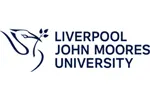

the United Kingdom
Liverpool John Moores University (LJMU)| The award | How you will study | Study duration | Course start | Domestic course fees | International course fees |
|---|---|---|---|---|---|
| BSc (Hons) | Full-time | 3 years | September | GBP 9250 per year | GBP 14450 per year |
Sports psychologists are increasingly in demand to help improve performance by developing key psychological and perceptual-cognitive-motor skills in a wide range of people involved in sport – from professional clubs and athletes through to schools.
They can be found working with elite and Paralympic athletes and professional sports clubs, as well as in physical education or therapeutic professions. They also work with individuals with specific neurological differences to help develop motor learning and control processes, plus aspects of social cognition.
The basis of applied sport psychology is to take the core psychological principles that underpin sport and apply them to real scenarios in professional sport, exercise, and physical activity settings plus areas such as physical education or therapeutic professions.
On this course you will develop scientific research skills, theoretical knowledge, and skills in reporting empirical findings so that you will be able to carry out research projects based on real sports practice. Moreover, a key component of the programme structure is to develop applied skills that will allow you to operate effectively in the sporting context.
You will develop fundamental and principal skills in Levels 4 and 5, culminating in an applied placement in Level 6, where you will spend a proportion of your final year working with professional athletes or clubs. In doing so, you will also develop transferable skills that are essential in most careers, such as critical evaluation and verbal and written presentations.
Practice is an essential part of your studies, so you will have regular use of our £25million state-of-the-art science laboratories and equipment, as well as opportunities to gain experience during your placement at a number of professional sports organisations.
The fees quoted are those for the 2018/19 year as information for 2019/20 is not yet available. The Department for Education (DfE) have recently announced that they will be freezing tuition fees for the 2019/20 academic year. However, this is still subject to the normal parliamentary approval. Once 2019/20 fees are confirmed we will update our web pages accordingly.
IELTS
6.0 (minimum of 5.5 in each component)
Below are some suggested courses at other providers that you may also be interested in:
Dubbing, Adaptation and Translation of Cinematographic Works Master Degree
IULM University of Milan
Find out moreManagement of Innovation and Sustainable Business Development MSc
NTNU School of International Business
Find out moreMSc International Business 4.0 - Leading Green & Digital Transformation MSc
ESSCA School of Management – Online Programs
Find out moreConsider a Foundation or Pathway course at Liverpool John Moores University (LJMU) to prepare for your chosen course:
If you do not meet the entry requirements for this course then consider one of these courses from another institution:
There are 343 other courses listed from Liverpool John Moores University (LJMU). A selection of these are displayed below:
Accounting and Finance with Foundation Year BSc (Hons)
Liverpool John Moores University (LJMU)
Find out moreAnimal Behaviour with Foundation Year BSc (Hons)
Liverpool John Moores University (LJMU)
Find out moreJoin the StudyLink email list and never miss a chance to turn your study abroad dreams into reality!

Find out more about studying in the United Kingdom